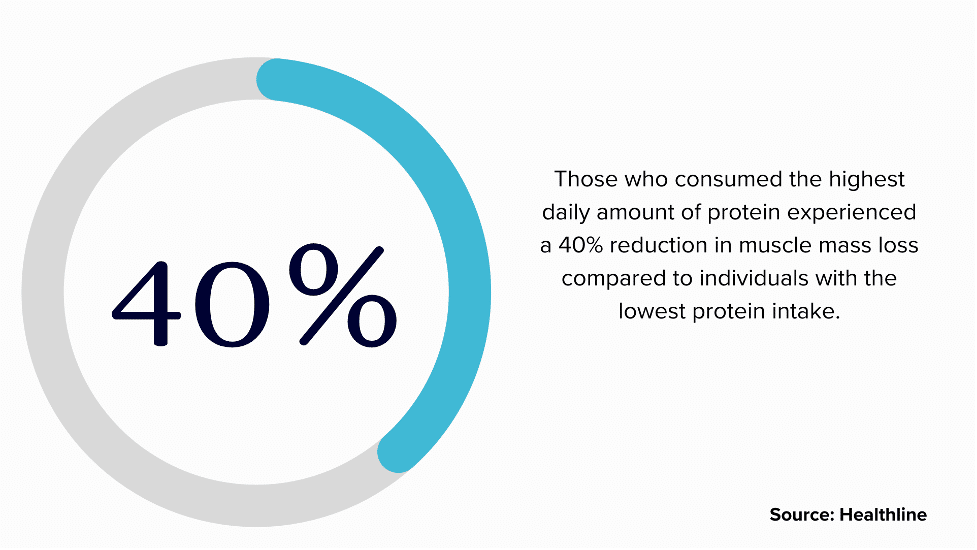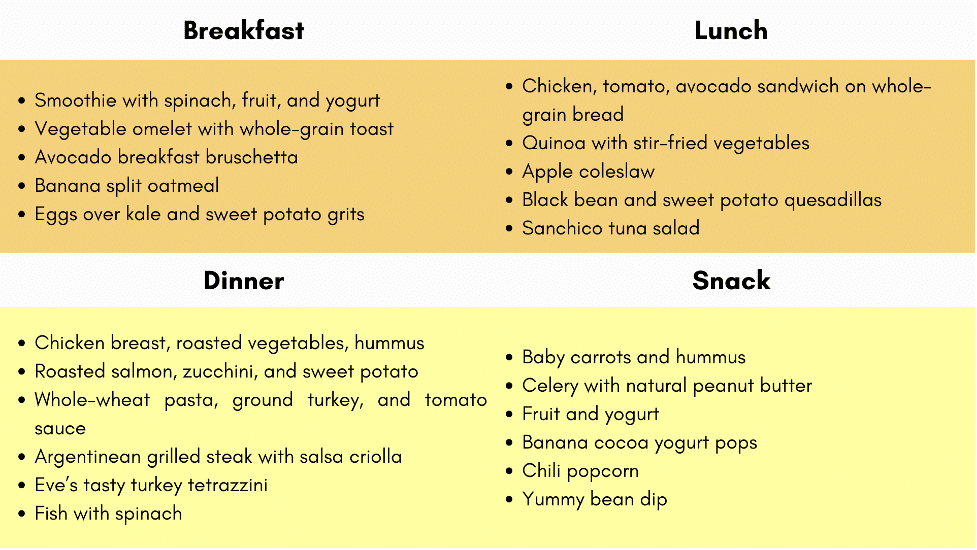Eating the right foods is important as you age. This guide explains the key nutrients seniors need and gives ideas for healthy meals. You’ll learn how to get enough nutrients like calcium, vitamin D, protein and fiber. It also addresses common challenges like poor appetite or dental issues. Make nutrition a priority to stay active and independent in your golden years.
The Importance of Nutrition in Senior Care
Malnutrition is a pressing concern for the aging population, affecting up to 35% of adults over the age of 65. A balanced, nutrient-dense diet is essential for seniors to maintain good health, prevent chronic diseases, and support overall well-being.
Proper nutrition can help seniors maintain muscle mass, strengthen bones, and boost cognitive function, ultimately enhancing their quality of life. For senior health care providers, ensuring adequate nutrition is crucial for promoting the overall well-being of their elderly patients or residents.
Conversely, malnutrition can lead to a range of devastating health problems, including decreased muscle mass, weakness, fatigue, and cognitive decline. It’s crucial for senior health care providers to prioritize nutritional care and ensure that seniors are receiving the essential nutrients they need to thrive.
Nutritional Needs for Seniors vs. Young Adults
As we age, our nutritional needs change. The table below compares the recommended daily intakes of key nutrients for seniors and young adults, highlighting the differences in their dietary requirements.
| Nutrient | Seniors | Young Adults |
| Calcium | 1,200 mg/day | 1,000 mg/day |
| Vitamin D | 800-1,000 IU/day | 600 IU/day |
| Protein | 1.0-1.2 g/kg body weight/day | 0.8 g/kg body weight/day |
| Fiber | 21 g/day (women), 30 g/day (men) | 25 g/day (women), 38 g/day (men) |
| Vitamin B12 | 2.4 mcg/day | 2.4 mcg/day |
This comparison table highlights the differences in recommended daily intakes of key nutrients between seniors and young adults. As we age, our nutritional needs evolve, and it’s crucial for care providers to recognize and address these changes to support overall senior health and well-being.
Key Nutrients and Their Impact on Senior Health
Certain essential nutrients are particularly important when it comes to senior nutrition. These include:
- Calcium and Vitamin D: Essential for maintaining strong bones and preventing osteoporosis, a common condition among the elderly.
- Fiber: Crucial for digestive health and preventing constipation, a prevalent issue in the senior population.
- Proteins: Necessary for preserving muscle mass, supporting immune function, and promoting wound healing.

- B Vitamins: These vitamins, especially B12, play a crucial role in energy production, nerve function, and red blood cell formation.
- Omega-3 Fatty Acids: Beneficial for reducing inflammation, supporting heart health, and promoting brain function.
- Antioxidants: Help combat oxidative stress and support overall cellular health.
Malnutrition can lead to a range of health problems, including anemia, cognitive impairment, depression, general fatigue, muscle weakness, and poor wound healing. By ensuring that seniors receive adequate amounts of these key nutrients, care providers can effectively mitigate these risks and support overall health.
Here’s a table highlighting some nutrient-rich foods that can be incorporated into a senior’s diet:
| Nutrient | Foods |
| Calcium | Dairy products (milk, yogurt, cheese), leafy greens, fortified plant-based milk |
| Vitamin D | Fatty fish (salmon, tuna, mackerel), egg yolks, fortified foods |
| Fiber | Whole grains, fruits, vegetables, legumes, nuts, and seeds |
| Protein | Lean meats, poultry, fish, eggs, dairy products, beans, and lentils |
| B Vitamins | Lean meats, poultry, fish, eggs, dairy products, leafy greens, fortified cereals |
| Omega-3 Fatty Acids | Fatty fish, walnuts, flaxseeds, chia seeds |
| Antioxidants | Berries, leafy greens, tomatoes, bell peppers, citrus fruits |
Challenges in Providing Balanced Nutrition to Seniors
Delivering a balanced, nutrient-rich diet to seniors can be a complex undertaking, fraught with various challenges. Some of the common obstacles faced by care providers include:
- Dietary Restrictions: Many seniors have specific dietary requirements due to medical conditions, such as diabetes, heart disease, or kidney problems, which can complicate meal planning.
- Appetite Issues: Age-related changes in taste and smell, as well as medication side effects, can lead to a decreased appetite and difficulty maintaining a balanced diet.
- Medication Interactions: Certain medications can interfere with the absorption or effectiveness of specific nutrients, requiring careful consideration in nutritional planning.
- Chewing Challenges: Dental issues, such as missing teeth, ill-fitting dentures, or difficulty chewing, can make it challenging for seniors to consume certain nutrient-dense foods.
To overcome these challenges, care providers must employ innovative strategies, such as appealing meal presentations, enhancing flavors without excessive salt or sugar, and incorporating supplements when necessary. By addressing these obstacles, they can ensure that seniors receive the balanced nutrition they need to thrive.
Best Practices for Care Providers in Senior Nutrition
Successful care providers have developed a range of best practices to optimize senior nutritional care. These techniques include:
- Supplement Use: Incorporating targeted supplements, such as calcium, vitamin D, and protein powders, to address specific nutrient deficiencies.
- Hydration Strategies: Promoting adequate hydration through water-rich foods, smoothies, and frequent small servings of fluids.
- Frequent, Smaller Meals: Providing seniors with multiple, smaller meals throughout the day to maintain consistent nutrient intake and manage appetite changes.
Additionally, many senior care facilities have implemented successful nutritional programs that incorporate personalized nutrition plans, regular meal assessments, and comprehensive patient education. By adopting these best practices, care providers can effectively support the unique nutritional needs of their senior patients.
Meal Plans for Senior Wellness
Incorporating nutrient-dense meals into a senior’s diet is crucial for promoting overall health and well-being. Here are some sample meal plans that can be adapted to suit individual preferences and dietary needs:

Recipes for Senior-Friendly Meals
Incorporating flavorful and nutrient-dense dishes into your meal plan can make a significant difference in promoting overall health and well-being. Here are some delicious and easy-to-prepare recipes that are perfect for seniors or those caring for aging loved ones.
20-Minute Chicken Creole
Instructions
- In a skillet, heat olive oil over medium-high heat. Add chicken and cook until lightly browned, about 5 minutes.
- Add onion, bell pepper, and garlic. Cook for 2-3 minutes until fragrant.
- Stir in chili sauce, cayenne pepper, oregano, salt, and black pepper.
- Reduce heat to low and simmer for 10 minutes, until chicken is cooked through.
- Serve over hot cooked rice.
Five A Day Salad
Instructions
1. In a large bowl, combine all vegetables and chickpeas.
2. Add croutons or toasted nuts, if using.
3. Drizzle with desired dressing and toss gently to coat.
4. Serve chilled or at room temperature.
Apple Carrot Soup
Instructions
- In a large pot, heat olive oil over medium-high heat. Add pork and cook until browned on all sides, about 5 minutes. Transfer to a plate.
- In the same pot, add onion and garlic. Cook for 2-3 minutes until fragrant.
- Add broth, carrots, apples, ginger, orange peel, salt, and pepper. Bring to a boil.
- Reduce heat and simmer for 15 minutes, until carrots are tender.
- Remove orange peel. Use an immersion blender to partially puree the soup, leaving some texture.
- Return pork and any juices to the pot. Simmer for 5 more minutes.
- Adjust seasoning if needed and serve hot.
These recipes are not only delicious but also packed with essential nutrients that are crucial for seniors. Feel free to adjust portions and ingredients to suit individual dietary needs and preferences.
Collaborative Approaches to Nutritional Care
Effective senior nutritional care requires a collaborative, multidisciplinary approach involving various healthcare professionals. This includes:
- Dieticians: Providing expertise in meal planning, nutrient analysis, and personalized dietary recommendations.
- Doctors: Assessing individual health needs, managing chronic conditions, and ensuring medication compatibility with nutritional plans.
- Caregivers: Implementing meal preparation, feeding assistance, and monitoring nutritional intake on a day-to-day basis.
Additionally, the involvement and education of family members can play a crucial role in the success of senior nutritional care plans. By fostering a collaborative environment, care providers can leverage the unique strengths and perspectives of each team member, ultimately delivering a more comprehensive and effective approach to senior wellness.
Frequently Asked Questions (FAQs)
1. What are the most common signs of poor nutrition in seniors, and how can they be addressed swiftly?
The most common signs of poor nutrition in seniors include weight loss, muscle weakness, fatigue, and cognitive decline. To address these issues, care providers can promote the consumption of nutrient-dense foods, monitor portion sizes, encourage hydration, address any oral health concerns, and consider the use of targeted supplements.
2. How can care providers tailor nutrition plans to accommodate multiple health issues?
Care providers can work closely with dieticians and doctors to create personalized nutrition plans that take into account an individual’s specific health conditions, dietary restrictions, and medication interactions. This collaborative approach ensures that the plan addresses each senior’s unique needs and supports their overall well-being.
3. What are the best methods to ensure seniors are actively participating in and adhering to their prescribed dietary plans?
Encouraging seniors to eat smaller, more frequent meals, making mealtimes social events, and incorporating supplements can help promote adherence to dietary plans. Additionally, involving families in the education and implementation of these plans can foster a supportive environment and increase the likelihood of long-term success.
Conclusion
For elders, prioritizing nutritional needs is vital for preserving quality of life. By understanding specific dietary requirements, proactively addressing challenges, and fostering a supportive environment, you can ensure adequate nourishment. Together, we can unlock the power of balanced nutrition to maintain health, vitality and overall wellness during the golden years.
